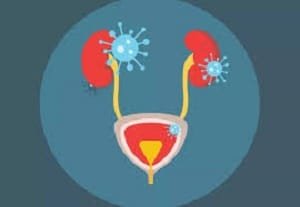What causes a urinary tract Infection, Symptoms, and Treatment
Urinary Tract Infections (UTIs) are among the most common bacterial infections, particularly affecting women. A UTI occurs when bacteria enter the urinary tract, leading to inflammation and discomfort. Understanding the causes, symptoms, and treatment options for UTIs is essential for prevention and effective management.
What Causes a Urinary Tract Infection?
1. Bacterial Infection
The primary cause of UTIs is bacterial infection, most commonly from Escherichia coli (E. coli), which normally lives in the intestines. Other bacteria that can cause UTIs include:
- Klebsiella pneumoniae
- Proteus mirabilis
- Enterococcus faecalis
2. Anatomical Factors
Certain anatomical features can predispose individuals to UTIs. For instance:
- Female Anatomy: Women have a shorter urethra, making it easier for bacteria to reach the bladder.
- Menopause: Post-menopausal women may experience hormonal changes that affect the urinary tract’s natural defenses.
3. Sexual Activity
Sexual intercourse can introduce bacteria into the urinary tract. Women who are sexually active are at a higher risk, especially if they do not urinate after sex.
4. Catheter Use
The use of urinary catheters can increase the risk of UTIs. Catheters provide a pathway for bacteria to enter the bladder, leading to infections.
5. Obstruction in the Urinary Tract
Conditions that obstruct the flow of urine, such as kidney stones or an enlarged prostate, can create an environment conducive to bacterial growth.
6. Weakened Immune System
Individuals with compromised immune systems, such as those with diabetes or undergoing chemotherapy, are more susceptible to UTIs.
7. Hygiene Practices
Poor hygiene practices can contribute to UTIs. Wiping from back to front after using the toilet can transfer bacteria from the rectal area to the urethra.
Symptoms of a Urinary Tract Infection
The symptoms of UTIs can vary based on the location of the infection but generally include:
- Frequent Urination: An urgent need to urinate frequently, often with little urine produced.
- Burning Sensation: Pain or a burning sensation while urinating.
- Cloudy or Strong-Smelling Urine: Urine that appears cloudy or has a strong odor.
- Pelvic Pain: Discomfort in the lower abdomen or pelvic region.
- Blood in Urine: Hematuria, or blood in the urine, can occur in some cases.
Serious Symptoms
In severe cases, a UTI can lead to kidney infections (pyelonephritis), which may cause:
- High fever
- Chills
- Nausea or vomiting
- Severe back or side pain
If you experience these symptoms, it’s crucial to seek medical attention promptly.
Treatment Measures for Urinary Tract Infections
1. Antibiotics
The primary treatment for UTIs involves antibiotics. The choice of antibiotic and duration of treatment depend on the severity of the infection and any underlying health conditions. Commonly prescribed antibiotics include:
- Trimethoprim-sulfamethoxazole (TMP-SMX)
- Nitrofurantoin
- Fosfomycin
- Ciprofloxacin
2. Over-the-Counter Medications
Over-the-counter pain relievers, such as ibuprofen or acetaminophen, can help alleviate discomfort associated with UTIs. Urinary analgesics like phenazopyridine may also be recommended to relieve burning sensations.
3. Increased Fluid Intake
Drinking plenty of water can help flush out bacteria from the urinary tract. Staying hydrated is a simple yet effective way to support your urinary health.
4. Home Remedies
While not a substitute for medical treatment, some home remedies may help alleviate symptoms:
- Cranberry Juice: Some studies suggest that cranberry juice may prevent bacteria from adhering to the bladder wall, though it should not replace antibiotics.
- Probiotics: These may support urinary tract health by maintaining a healthy balance of bacteria.
5. Follow-Up Care
After completing a course of antibiotics, it’s essential to follow up with your healthcare provider if symptoms persist or recur. This may involve additional testing to ensure that the infection has cleared and to identify any underlying issues.
Prevention of Urinary Tract Infections
Preventing UTIs involves several lifestyle and hygiene measures:
- Stay Hydrated: Drink plenty of water to promote regular urination.
- Practice Good Hygiene: Wipe from front to back after using the toilet and ensure proper hygiene before and after sexual activity.
- Urinate Regularly: Do not hold urine for long periods; urinate when you feel the need.
- Consider Probiotics: Incorporate probiotics into your diet to promote healthy bacteria in the urinary tract.
- Limit Irritants: Reduce consumption of irritants like caffeine, alcohol, and spicy foods.
Understanding the causes and treatment options for urinary tract infections is essential for prevention and effective management. If you suspect you have a UTI, consult a healthcare professional for accurate diagnosis and appropriate treatment. By understanding those things what causes a urinary tract and by taking the right measures, you can help reduce your risk of UTIs and maintain better urinary health. Remember, early intervention can prevent complications and promote a healthier lifestyle.
Thanks for visiting Gymbag4u.com
You may also love reading our following articles.
